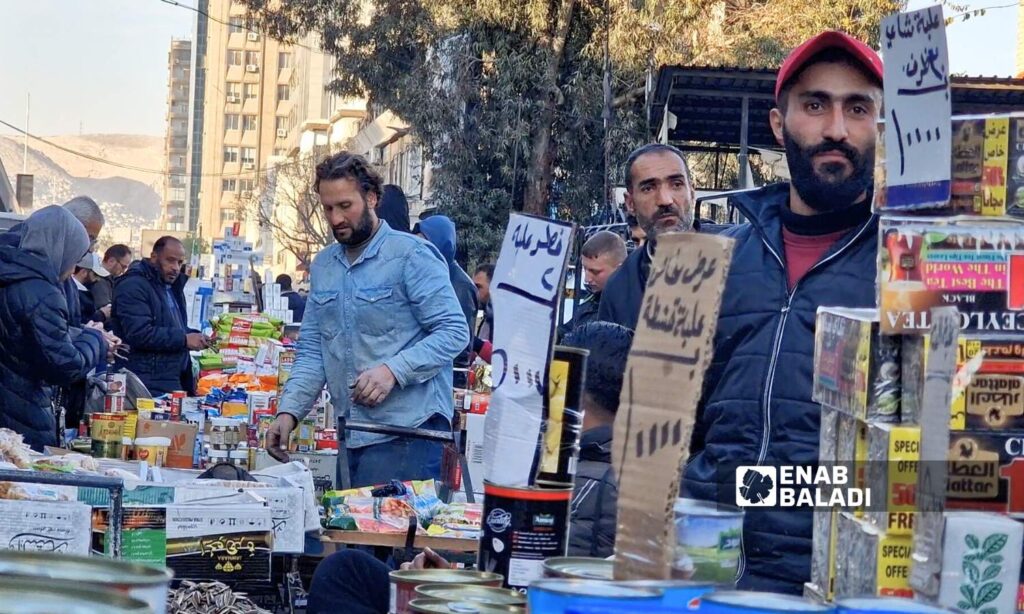The Ministry of Internal Trade and Consumer Protection has directed supply patrols to control the foreign goods and products that are widespread in the markets.
Dr. Mohammad Suleiman, the supply director at the Ministry of Internal Trade and Consumer Protection, told Enab Baladi that the ministry is operating under a transitional government and amidst corrupt old supply monitors, but work is being conducted through a reasonable number of monitors until a team is recruited and trained to cover all areas in the governorates.
The city of Damascus has witnessed a significant increase in the availability of foreign goods and food products, particularly Turkish and Iranian items, as stalls selling these products have proliferated throughout the city.
The supply director stated, “We cannot prevent the stalls that sell the goods and products from operating, as their owners are working to secure a living.”
However, this issue is related to two factors: firstly, whether the location of these stalls is illegal or not, which concerns local councils and the governorate; and secondly, whether the conditions for displaying food products meet the required specifications, which falls under the Ministry of Internal Trade.
The ministry monitors violations
Director Mohammad Suleiman confirmed that the ministry generally takes samples of goods to ensure their validity and to monitor and prove violations.
Regarding foreign goods, there is no problem since the economy has shifted to a free market economy, according to the supply director. Furthermore, the crossings analyze samples of goods through the ministry to ensure that they meet the required specifications.
Demand
According to what Enab Baladi has observed, stalls selling foreign food products are widely and haphazardly spread across the streets.
These stalls carry all types of food items, including legumes, grains, canned goods, and essential food supplies like oil, sugar, rice, and biscuits.
The stalls are experiencing a demand from the general public due to their significantly lower prices compared to national products.
Iranian goods were stored
The owner of one stall told Enab Baladi that the Turkish products sold at his stall are currently coming through the Syrian-Turkish border in Aleppo.
Regarding the Iranian products, he clarified that they were previously stored in warehouses and have been put on the market after the liberation.
Stalls have spread extensively in the capital, Damascus, following the fall of the regime on December 8, 2024.
Prior to that, the Damascus governorate took strict measures against the stalls to eliminate their presence within the capital and to relocate them to interactive markets on the outskirts of the capital.

